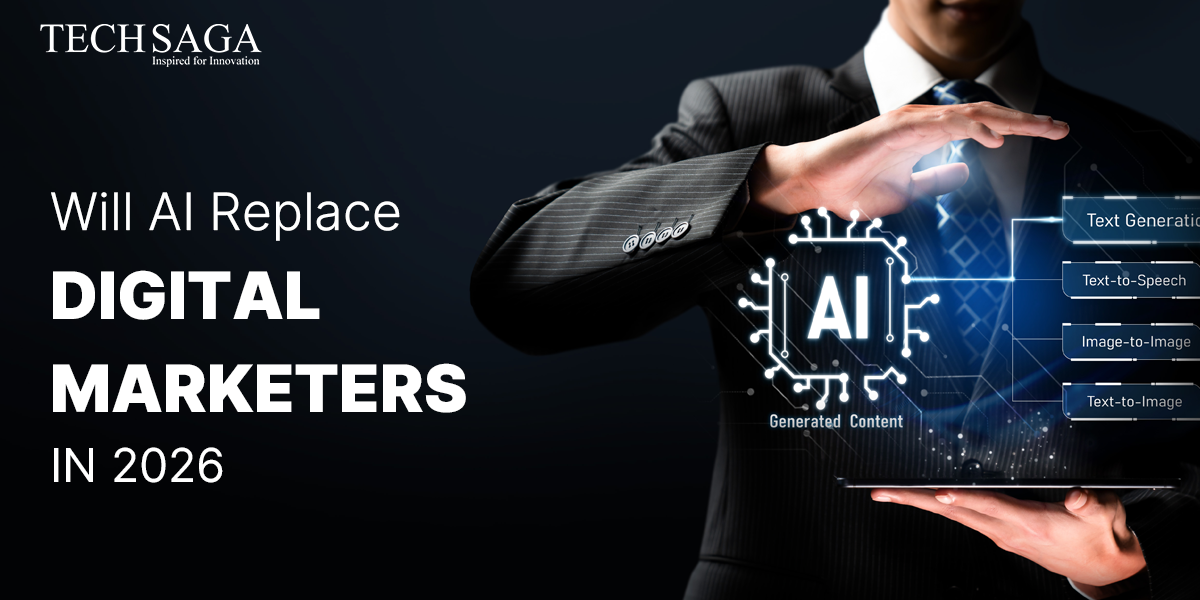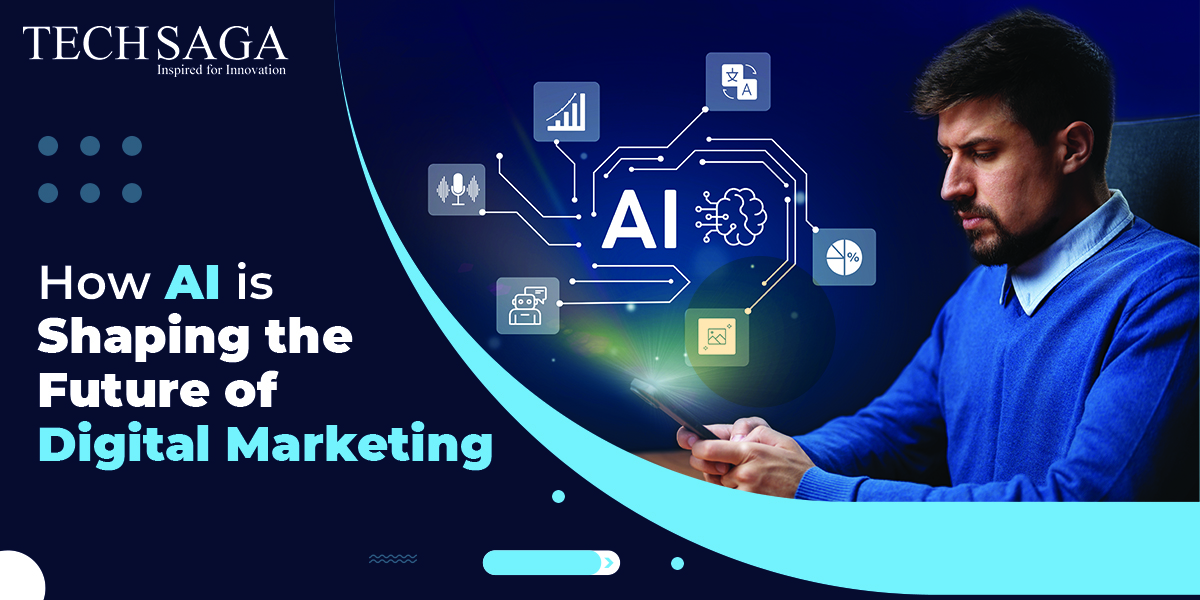Team Techsaga
Gain valuable insights and stay updated with the latest innovations through our engaging blog. Explore trends, technology advancements, and expert opinions to navigate the ever-evolving world of IT.
Will ChatGPT Replace Search Engine?
Professionals in every sector, from publishing and education to healthcare and big tech, are scarified of ChatGPT. It seems that the bot will not just take your job but also make hunt machines. And a number of other technologies obsolete.
Of course, there are not numerous motifs in the technology sector that are as overhyped as artificial intelligence. It’s simple to produce sensational captions but does the notion that ChatGPT will ultimately replace Google and other hunt machines have any merit?
What is ChatGPT and its capability?
OpenAI developed ChatGPT, a language model based on the GPT (Generative Pre-trained Transformer) architecture. Its purpose is to generate human-like responses to the text prompts you provide. Essentially, it uses machine learning to understand the context of the input. And generate a response that’s similar to what a human might say.
ChatGPT’s key advantage is its pre-training on a massive dataset of text from the internet, providing it with extensive general knowledge about the world. This means that it can answer a wide range of questions.
Another advantage is that ChatGPT can generate creative and even humorous responses. Making it a fun and engaging tool for conversation. However, it’s important to note that ChatGPT is not perfect. And can sometimes generate responses that are inaccurate, inappropriate, or even offensive. The quality of the training data it was exposed to and the prompts it receives significantly influence the performance of the machine learning model.
How ChatGPT Works and Its Design Objectives Explained:
ChatGPT is a language model based on the GPT (Generative Pre-trained Transformer) architecture. The model undergoes training on a massive dataset of text from the internet, utilizing unsupervised learning techniques to grasp patterns and relationships between words and phrases.
When you provide a text prompt to ChatGPT, it uses this training to predict the most likely next word or phrase based on the context of the input. It then uses this prediction to generate a response that’s similar to what a human might say.
ChatGPT’s design incorporates flexibility and adaptability for various tasks and domains, making it one of its key advantages. This versatility stems from its pre-training on a large and diverse dataset of text, providing a broad base of knowledge about the world. This allows ChatGPT to answer a wide range of questions and generate responses that are creative and even humorous.
Comparison of ChatGPT to search engines and how it differs from them:
Google and Bing, as search engines, are designed to furnish users with a list of relevant web pages based on a set of keywords or search terms. These pages may contain text, images, videos, or other types of content that are relevant to the user’s query. Search engines use complex algorithms to rank web pages based on factors like the relevance of the content, the quality of the website, and the authority of the source.
In contrast to other approaches, ChatGPT is designed to generate human-like responses to the text prompts you provide. Furthermore, Delivering conversational and interactive replies rather than presenting a list of web pages or external sources of information. ChatGPT can provide more nuanced and personalized responses than a search engine because it can understand the context of the input and generate responses that take into account the user’s specific needs and interests.
Conclusion and final thoughts on the future of ChatGPT and Search engines:
In conclusion, ChatGPT and search engines are both important tools for finding and generating information. But they have different strengths and weaknesses. Search engines aim to swiftly provide users with a list of relevant web pages based on keywords. While ChatGPT is designed to generate personalized and interactive responses to text prompts.
The future of ChatGPT and search engines is likely to involve continued advancements in machine learning and natural language processing. Further, you can see how ChatGPT can help with local SEO. Along with other languages, models will likely become more sophisticated. And capable of generating even more human-like responses to text prompts. while search engines will continue to improve their algorithms and incorporate new types of content, such as voice and video.
Overall, the future of ChatGPT and search engines is likely to involve a continued evolution. And refinement of these technologies, with an emphasis on improving their accuracy, reliability, and usefulness for users. It will be important for developers and users alike. To carefully consider the potential benefits and risks of these tools, and to use them responsibly to promote positive outcomes for individuals and society as a whole.
Read More:
How ChatGPT Can Help With Local SEO?
Why You Should Hire A Digital Marketing Agency?
TAG: Digital Marketing




